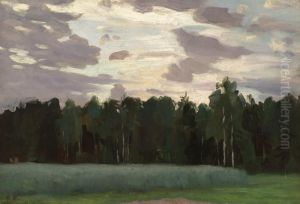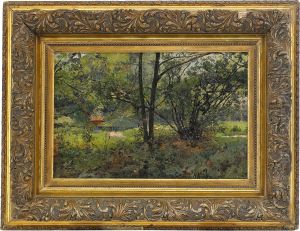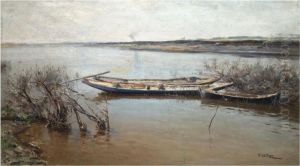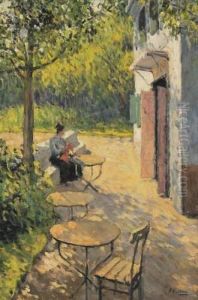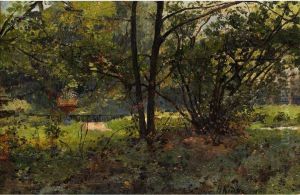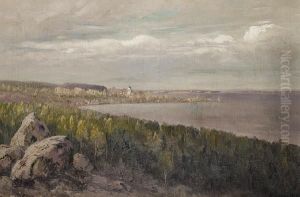Nicolai Alexandrov. Klodt Paintings
Nicolai Alexandrovich Klodt, born in 1805 in St. Petersburg, Russia, was a distinguished Russian landscape painter and a prominent figure in 19th-century Russian art. He came from a noble family with a strong artistic lineage; his uncle, Mikhail Klodt, was a noted sculptor, establishing a creative environment that nurtured Nicolai's artistic talents from a young age. Klodt embarked on his artistic journey at the Imperial Academy of Arts in St. Petersburg, where he studied under the tutelage of Maxim Vorobiev, a master of landscape painting. His education at the academy laid the foundation for his deep appreciation of nature and the Russian countryside, themes that would dominate his work throughout his career.
Klodt's artistry evolved significantly over the years, reflecting the changing tastes and social currents of 19th-century Russia. Initially, his work was heavily influenced by the Romantic movement, characterized by its emphasis on emotion and the sublime beauty of nature. However, as his career progressed, Klodt began to incorporate elements of Realism into his landscapes, focusing on the accurate depiction of Russian rural life and the natural environment. This shift was part of a broader movement within Russian art, as artists sought to convey the realities of their country and its people, moving away from idealized and romanticized representations.
A key member of the Peredvizhniki (The Wanderers) - a group of Russian realist artists who formed an artists' cooperative in protest against academic restrictions - Klodt contributed significantly to the development of Russian landscape painting. The Wanderers aimed to make art accessible to the public and often depicted scenes of everyday life, social injustices, and the beauty of the Russian landscape, aligning well with Klodt's interests and artistic direction. His works during this period are noted for their detailed representation of nature, atmospheric effects, and the emotional depth with which he imbued his landscapes.
Klodt's contributions to Russian art were widely recognized in his lifetime, earning him numerous accolades, including the title of academician by the Imperial Academy of Arts. Despite his success, he remained deeply connected to the Russian countryside, drawing inspiration from its diverse landscapes throughout his life. Nicolai Alexandrovich Klodt passed away in 1867, leaving behind a legacy that continues to influence Russian landscape painting. His works are preserved in major Russian museums, including the Tretyakov Gallery and the Russian Museum, serving as a testament to his artistic achievements and enduring impact on the art world.
